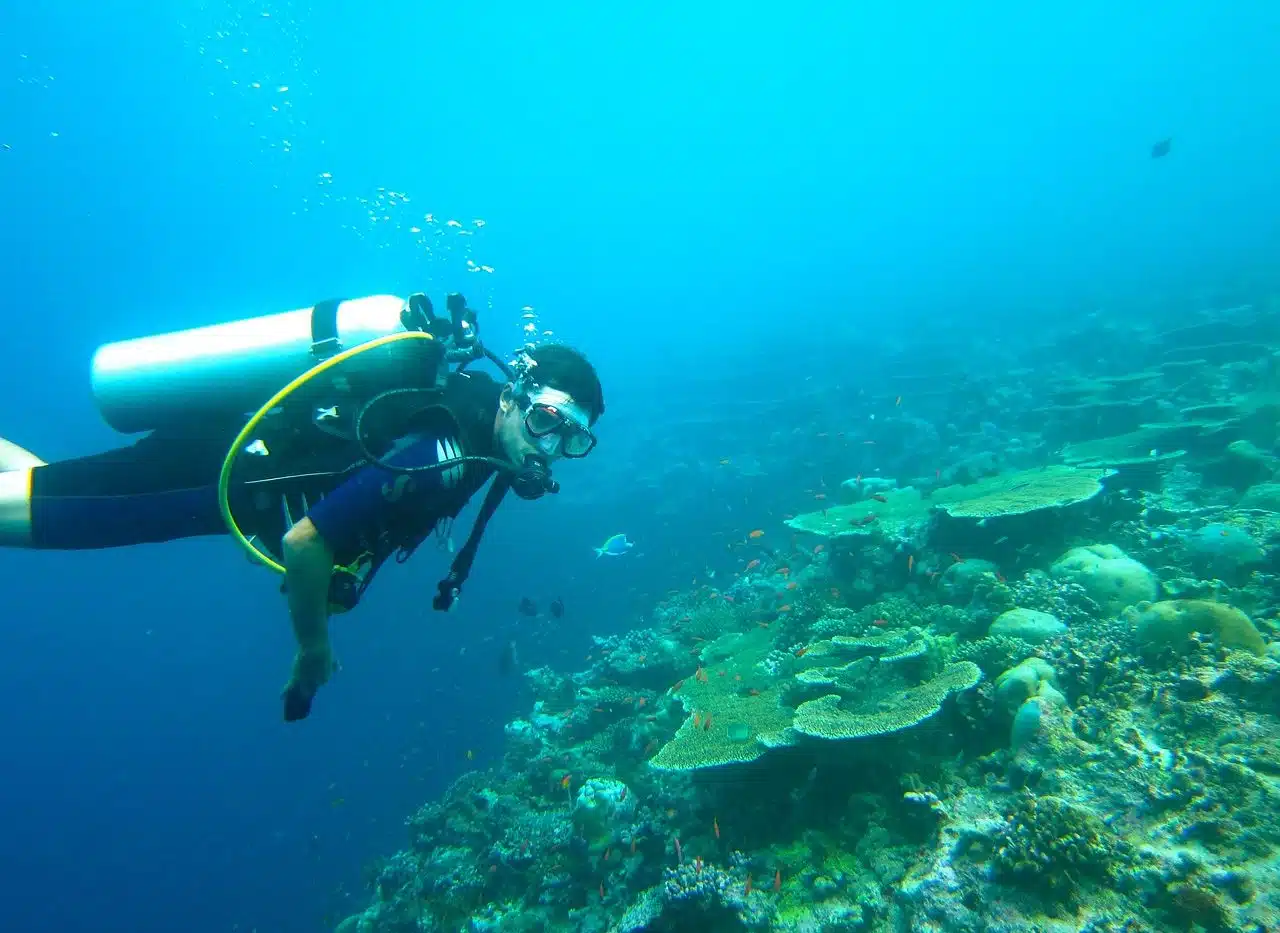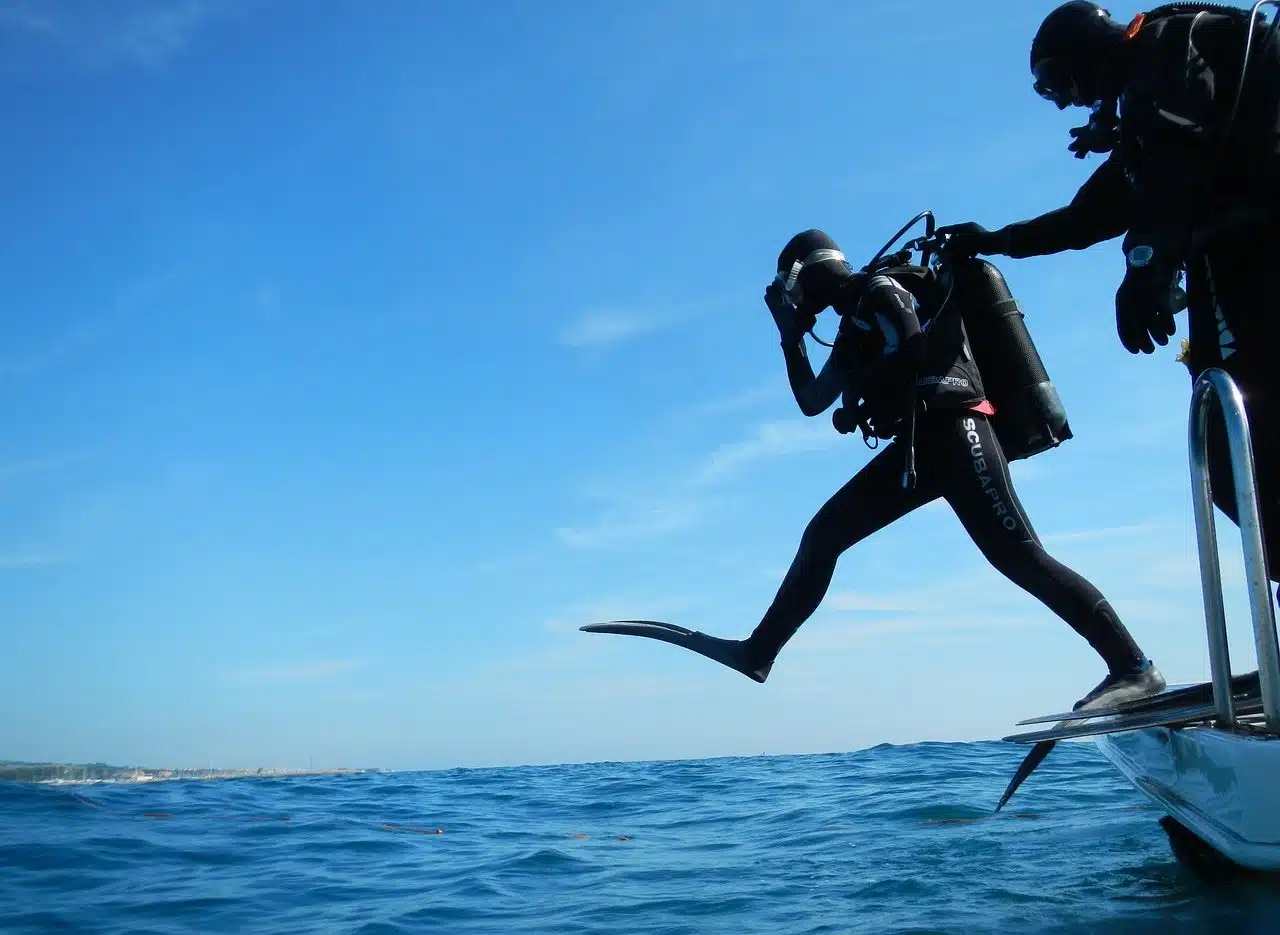
Diving is an underwater activity that can be carried out for various purposes.
Diving is an underwater activity that can be done for recreational, research or sporting purposes. It consists of entering the water and submerging the entire body, so, in general, it is carried out with the help of some type of equipment that allows the diver not to have to surface to breathe.
For example: "I would like to take a diving course before traveling to Mexico" , "Many tourists choose to dive in the lake, although others prefer to hike on the hill" , "The diving instructor suggested that we not go far away." too much of the boat .
When the person decides to dive without any type of device or equipment , it is called free diving . This practice simply involves diving into the water and swimming below the surface while holding your breath. For logical reasons, when diving this way, we must surface very frequently to take in oxygen. Therefore, it is impossible to reach great depths.
Diving equipment
To observe underwater wonders, such as corals or fish , it is more appropriate to have diving equipment . Certain basic components are protective eye masks (which facilitate vision underwater), fins or frog legs (to facilitate movement), a protective suit (which allows us to resist low water temperatures, especially in the deepest areas) and, of course, the oxygen tank with the rest of the associated elements to be able to breathe underwater.
It is possible to dive near the surface without the help of additional oxygen. We only need a snorkel , which is an elongated tube that goes from the individual's mouth to the surface and that allows breathing even when the subject is with their face under water. The less demanding alternatives to diving are the most sought after by tourists and people who are curious but do not have the necessary training nor do they want to acquire it.

To dive you need certain equipment.
Training required
Given that many people know how to swim from a young age, the importance and level of demand for physical and mental preparation that any individual who wishes to practice diving must undergo is often overlooked; As a curiosity, something similar happens with the training to become an astronaut, bridging the gap.
For human beings, water is a very unstable and sometimes unpredictable environment, which forces us to make greater physical effort to move than we are used to on land . It goes without saying that we are unable to breathe once submerged, which is why training must make us capable of making the most of our energies to face all limitations and know how to overcome emergency situations.
Adequate aerobic work collaborates with the adaptation of the respiratory and cardiovascular systems to the diving experience, helping us to improve aerobic glycolysis (energy production) and economize our resources, to be as efficient as possible when performing movements under the water.
One of the key exercises in the training aims to extend apnea time; that is, what we are capable of resisting without breathing. It is always advisable to have the supervision of a tutor, to indicate the appropriate progression of the dives and to assist us in case of dizziness.
Some of the activities recommended to improve lung capacity are swimming , dancing, steps, aerobics and cycling. The most important thing is to be constant in the intensity and frequency of the practices, and increase the variables progressively, as the body adapts to the demands. It should be noted that all this depends on the age and conditions of each person, which is why you should not proceed without adequate knowledge.
